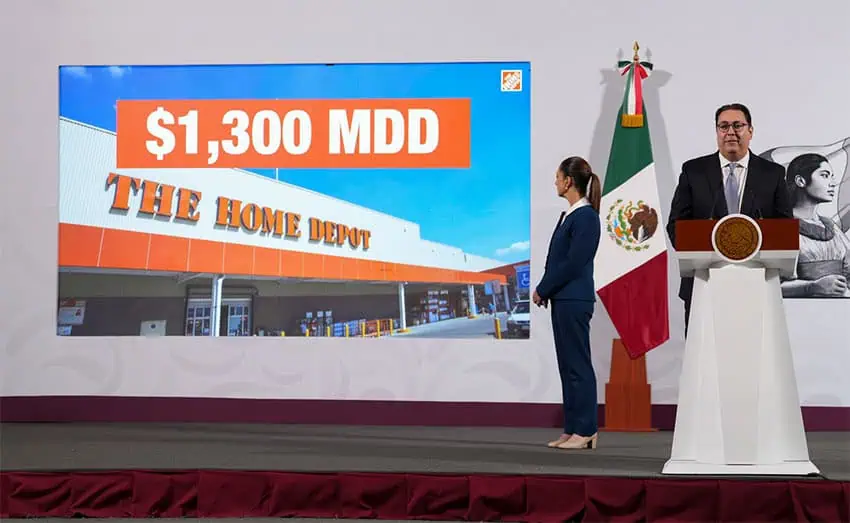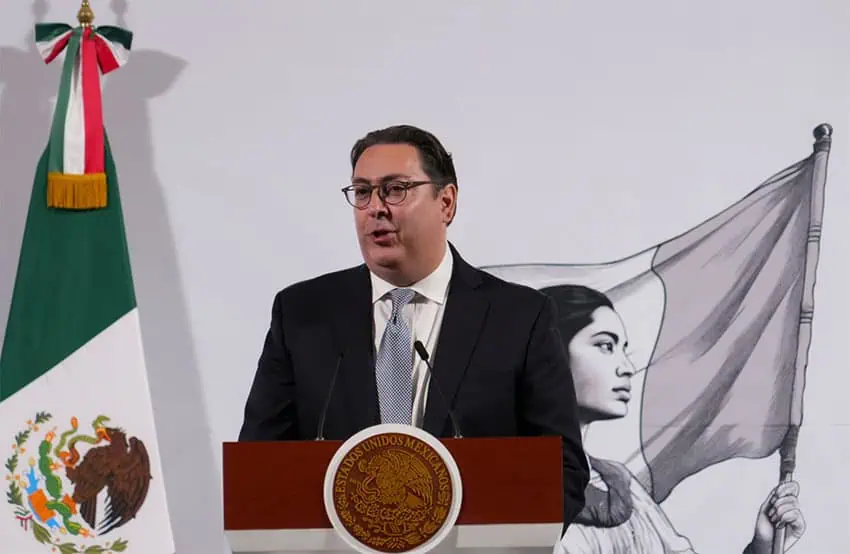Home Depot, the multinational home improvement retail corporation, announced it will invest US $1.3 billion over the next five years to strengthen its presence in Mexico, generate employment, and increase the percentage of locally sourced products.
Home Depot Mexico CEO José Antonio Rodríguez announced the investment plan during President Claudia Sheinbaum’s Thursday morning press conference. Sheinbaum praised Home Depot — the largest home improvement retailer in the United States — for its commitment to Mexico.

“By increasing local sourcing and expanding operations, it is not just creating jobs but also boosting the country’s overall economic development,” Sheinbaum said, adding that the investment dovetails with the administration’s Plan México policy.
Plan México is an industrial policy that seeks to provide investment incentives and collaboration between the government and the private sector, both foreign and domestic, with the goal of making Mexico the 10th-largest global economy. It also aims to strengthen domestic markets and increase the percentage of locally produced goods in key industries.
Ximena Escobedo, head of the Productive Development Unit at Mexico’s Economy Ministry, said Home Depot currently employs over 18,000 people in Mexico. The expansion is expected to directly create an additional 2,000 jobs and indirectly contribute to the creation of a further 10,000 positions.
Rodríguez, the CEO, said the investment demonstrates the company’s confidence and commitment to Mexico.

“We started with just four stores and 500 employees [in 2000],” Rodríguez said. “Today, we operate 140 stores in more than 100 cities with 18,000 associates, and we are ready to take the next step.”
Among the key aspects of the investment plan:
- Opening an average of five new stores per year to reach 165 locations with 20,000 employees by 2030.
- Strengthening e-commerce capabilities.
- Expanding logistical infrastructure by establishing specialized distribution hubs across the country.
Although roughly 85% of Home Depot’s products come from Mexican suppliers, Rodríguez said the company aims to increase this figure to 100%, with plans to export these products to Home Depot stores in the United States and Canada.
Rodríguez spoke in favor of tariffs on Chinese products imported to Mexico and sold directly to consumers, saying the company supports “fair competition,” while also discussing the viability of using railroads for freight transport, both of which are policies being championed by the Sheinbaum administration.
With reports from El Economista, Milenio, Merca2.0 and Infobae
